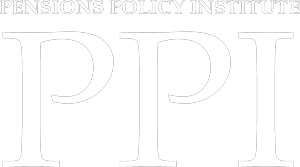We are the UK's leading independent authority on pensions and retirement policy. We conduct rigorous, impartial evidence-based research that shapes better retirement outcomes.
Reports and Briefing Notes
The implications of the Coalition Government’s reforms for members of the public service pension schemes
This report and briefing paper sets out the PPI’s independent assessment of the potential impact of the Coalition Government’s proposed reforms to the public service pension schemes on the value of the pension benefit for members of the four largest public service pension schemes. The analysis covers the four largest public service schemes: the NHS, Teachers, Local Government and Civil Service schemes which account for around 85% of public service pension scheme members.
The intention of the report is to inform the policy debate and to aid understanding about the potential impact of the Government’s proposed reforms to the public service schemes. The PPI is not lobbying for or against the implementation of the Government’s proposals. This project has been funded by the Nuffield Foundation. The PPI is very grateful for their support. The views expressed in the research are however those of the authors and not necessarily those of the Foundation.
Chapter one considers how the Effective Employee Benefit Rate (EEBR) can measure and compare the value of Defined Benefit pension schemes with different benefit structures and with different scheme parameters.
Chapter two explores the impact of the Coalition Government's proposed reforms on the value of the four largest public service pension schemes: the NHS, Teachers, Local Government and Civil Service.
Chapter three looks at the impact of the different components of Coalition Government's proposed reforms for members who joined the scheme before or after the 2007/8 reforms.
Chapter four considers the implications of the Coalition Government's reforms to the four largest public service pension schemes for scheme members with different characteristics, including: Those with fast salary progression (high-flyers) compared to those with slow salary progression (low-flyers); Those with high earnings compared to those with low earnings; Those who stay in the scheme for only a short period of time (early leavers) compared to those who stay for a long period of time (long stayers).
To download the briefing paper, please click here.
Join our mailing list
Signup to receive all the latest news from the PPI



